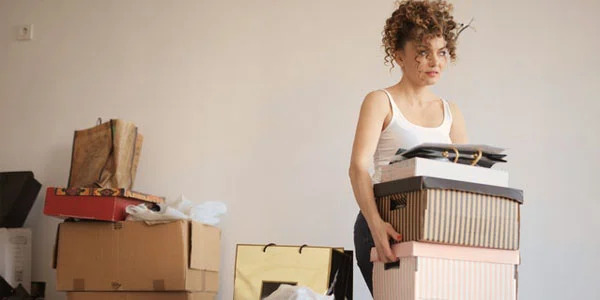According to the National Association of Realtors, single women constituted 19 percent of all homebuyers in 2021, an increase from 15 percent in 2014. Single men account for only 9% of all buyers, while married and unmarried couples account for roughly 70% of all transactions.
A Bank of America study indicated that around 65% of single female potential homebuyers said they'd rather not wait until they're married to buy a home, while 30 percent of women who currently own homes did so when they were single.
5 Things single women homebuyers should know
The home buying process for a single person may differ from purchasing property with a partner. On the positive side, you won't have to think about anyone else's wish lists other than your own. (Your desire for a large kitchen isn't competing with your spouse's need for a spacious garage.) One disadvantage is that you'll be going through the mortgage procedure with only one qualifying income rather than two, which may mean you won't be able to get as large a loan.
Aside from the obvious, if you're a single woman starting the home-buying process, there are a few more things you must be aware of. Here are a few of them.
Save as much as you can and build credit.
My first advice to all the single women looking for a new home is to save as much as they can. Ladies, you have only one source of income, and you have to complete the home buying process with that amount of money. You have to cover the costs of applying for a mortgage, make a down payment, and make monthly mortgage payments with that single income.
As a single female buyer, the most important thing you can do with your finances is save for a down payment and improve your credit score. That will help you prove yourself as a responsible client to lenders. Try to keep your debt-to-income ratio below 43% and a credit score above 650. Pay off your debts before applying for a mortgage. Try to consolidate your payday loans or settle your credit card debt to maintain a low DTI ratio and a good credit score.
A down payment of at least 3% to 5% on a conventional mortgage is recommended as a general rule of thumb. So, if you're buying a property for $200,000, you'll need a home loan of at least $10,000. However, if you can afford it, make a 20% down payment on the home loan, which would help you avoid buying private mortgage insurance.
A 3% down payment with a 620 credit score is enough to qualify for a conventional loan. But if your credit score is less, you can opt for FHA, VA, and USDA loan programs. There are no credit score and downpayment requirements for VA and USDA loans, and you can qualify for an FHA mortgage with a 500 credit score.
Check your credit score and how you might appear to potential lenders - are you on track with your monthly payments, and are all your accounts in good standing? Because you don't have a partner's good credit to offset your own, you'll need to address any conspicuous flaws or negative listings on your credit report.
While most homeowners shop together, you'll present your case to lenders as a single candidate, allowing your salary, savings, and credit history to speak for themselves. You must ensure that your financial affairs are in order.
Another alternative is to ask a family member to act as a guarantor or co-signer on your loan.
Shop for the best interest rates
Shop around for the best interest rates and determine how much of a mortgage you are prequalified for. Getting a prequalification letter not only proves you're a good applicant but also tells you how much you can borrow (and buy).
While the bank may have pre-approved you for a specific amount, this isn't usually the range in which you should shop. The bank crunches figures and comes up with this pre-approval figure. Still, it doesn't consider your particular financial situation, such as how much you spend on your necessary and discretionary purchases or what your long-term financial goals are.
Don't go out and buy an expensive dream home right away when you are new in the housing market. The last thing you want to do is buy a house beyond your financial means and end up being house poor (i.e., devoting all of your financial resources to paying your mortgage and maintaining your home).
Instead, become intimately acquainted with your budget so you can determine how much house you can afford.
When calculating the cost of homeownership, don't forget to factor in the hidden expenditures that aren't visible at first but accumulate over time, such as insurance, property taxes, and maintenance fees, which can add up to a significant sum.
With only one source of income, you could soon become a slave to your mortgage, with little opportunity for maneuvering. Consider whether you want a fixed or variable rate mortgage with this in mind.
Once you know how much you can afford to borrow, it's time to take action: budget with your salary for six months as if you're paying for your forthcoming mortgage, bills, and other costs. Are you able to live comfortably, or are you struggling to make ends meet? This exercise might give you an accurate picture of what you can afford.
Take safety and security seriously
As a single woman, you should give importance to safety, security, convenience, and the size of your home.
You can buy condos instead of single-family detached homes, and two-bedroom homes are equally suitable for you.
Don't settle for anything less than a good neighborhood close to departmental stores, shopping, and gym as a single woman. You would love to be right in the middle of it all and may give up larger homes in exchange for a better location.
When looking for a property, take extra precautions to avoid residences close to dark alleys or have front entrances hidden from the street.
Homes with a well-lit lobby, garages with internal access into the house, and built-in alarm systems should be noted.
Think from a long-term perspective
Have a backup plan when you are buying a new home. You may relocate or get married and start a family. An exit strategy is a must.
This could imply purchasing a home with rental potential, allowing you to rent out your condo, townhouse, or house as needed. You may even consider renting out a spare bedroom if circumstances change or you want to save money on living expenses.
Set aside money for emergencies
Single female home buyers who don't have a spouse to fall back on (if they lose their employment or have a medical issue) need an emergency fund even more.
Unexpected housing costs, such as leaking pipes or a damaged stove, are also likely to arise. You should have six months' worth of mortgage and living expenses set aside in an emergency fund. If you use this account, replenish it as well.
Final words
While there is no federal home loan just for women, various groups in your state or local community may offer grants or programs tailored to your situation, such as being a single mother buying a home or having a specified income range.
Furthermore, single women can apply for the same mortgage programs as everyone else. Consult a HUD-approved housing counselor in your area to learn about your loan alternatives as well as any local grants or home loan programs.









